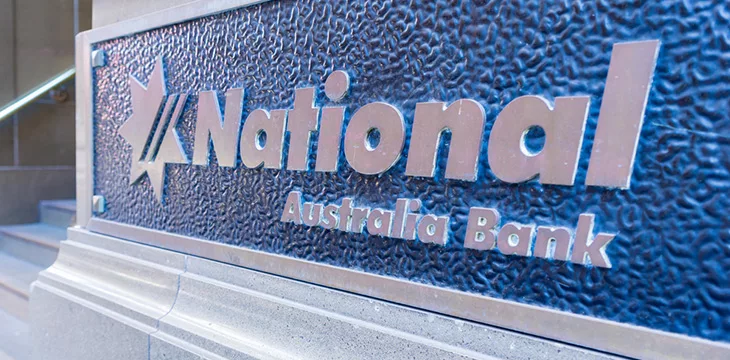|
Getting your Trinity Audio player ready...
|
One of the four largest banks in Australia, National Australia Bank (NAB) (NASDAQ: NAUBF), has pulled the plug on its AUDN stablecoin.
Citing a lack of customer demand, NAB canceled the project, causing the team to switch to independent Australian dollar stablecoin Ubiquity. The latter will join ANZ Bank and Novatti (NASDAQ: NTTIFI) as the race continues to create the AUD version of USDC.
NAB started work on the AUDN stablecoin in 2022 and thought clients would use it to settle cross-border transactions, among other uses.
eAUD pilot means Aussie dollar CBDC could happen
Like many other countries, Australia is exploring the concept of an Australian Dollar CBDC. It has been working with the Digital Finance Cooperative Research Centre (DFCRC) to test the idea.
While Australia has yet to announce concrete plans to launch the eAUD, CBDCs are moving ahead full steam elsewhere, and national digital currencies will pose serious competition to private stablecoins.
Adding to the woes of private stablecoin issuers is the ever-worsening reputation of Tether, the largest one by market cap. Its ties to terrorism and trafficking and continued refusal to prove it is backed by real U.S. dollars continue to harm the image of private stablecoins generally. The Brookings Institute recently published a paper showing that the U.S. government views private stablecoins as a national security threat, and it’s a safe bet that other governments feel the same.
Why would anyone use bank-issued coins running on expensive blockchains like Ethereum when national digital currencies can be sent anywhere in the world in seconds through systems similar to mBridge? A betting man might wager that the National Australia Bank has asked itself the same question, and that’s why it has thrown in the towel on AUDN.
Western nations are lagging behind when it comes to CBDCs
Australia isn’t the only ‘Western’ country that hasn’t announced concrete plans regarding a CBDC. The United States has not committed to one either. Earlier this year, Federal Reserve Chairman Jerome Powell said the USA was “nowhere near” pursuing one, let alone launching it.
What about the U.K.? Like Australia, it is in the research and testing stage. There’s been lots of chatter about ‘Britcoin,’ but no details as of yet. Likewise, Bundesbank president Dr. Joachim Nagel says the digital euro won’t be introduced anytime soon.
What’s the reason for developed nations lagging behind? Some put it down to lack of need—these nations are already wealthy and don’t urgently need to innovate—while others point to the divided attitudes among the citizens of these countries as the main reason for the sluggish progress. It’s well known that attitudes to CBDCs vary widely from country to country, and Western nations tend to be the most divided on them.
Whatever happens with individual countries like Australia in the short term, CBDCs are a huge trend, and they almost certainly spell doom for most private stablecoins. Expect similar projects to fold in the coming months and years.
To learn more about central bank digital currencies and some of the design decisions that need to be considered when creating and launching it, read nChain’s CBDC playbook.
Watch: Stablecoins with Daniel Lipshitz

 09-14-2025
09-14-2025 





